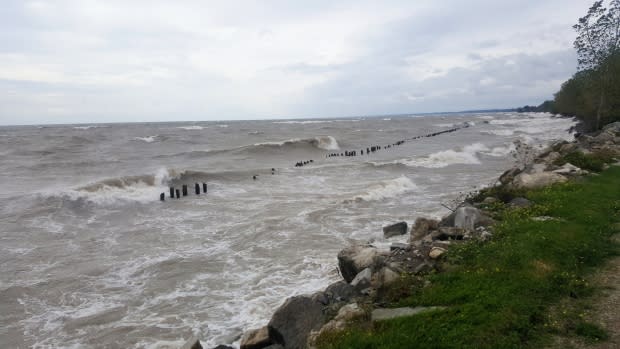Oil travelling near Great Lakes on the rise, scientists probe impacts
The International Joint Commission newest report explains ways to improve the understanding of potential impacts of crude oil spills on water quality and ecosystems of the Great Lakes.
Oil production is up in central northern United States and western Canada. With it, the transportation of crude oil through the Great Lakes has increased.
The report, Potential Ecological Impacts of Crude Oil Transportation in the Great Lakes Basin identifies potential outcomes to oil spills. They found there's been more scientific research done on marine systems in ocean and coastal spills than in the freshwater system.
"We found there are definitely risks to a number of different aquatic habitats in the Great Lakes," said Michael Murray, a primary author of the report and a staff scientist at the National Wildlife Federation.
Scientists looked at which species and habitats may be more sensitive, as well as where the oil pipelines run.
"You have pipelines close to the lakes or going through the water like the Straits of Mackinac or also where you have refineries," Murray said. "Those are all areas where there is potential for a spill that can be right on or near the Great Lakes."

The report concluded there are 15 areas vulnerable to oil spills in the Great Lakes. Most are near shorelines in all five of the Great Lakes, including Western Lake Erie and the Huron area corridor.
"In terms of ecological impacts, it's interesting that all levels of the food web are potentially at risk," Murray said. Some of the species involve small organisms like phytoplankton, to fish and any wildlife exposed to the spill.
He said researchers need to find out more about the impact of oil moving through pipelines in the water or via rail would be on those species.
According to Murray, there's also a lack of knowledge on how oil would affect organisms through their life cycle stages, and how quickly recovery might take place after a spill. One of the concerns is what the major longer-lasting damage may be on the ecosystem after a spill.
"We can partly look to other studies in the marine system to see where that's been done," said Murray. "In some cases it seems that the populations were depressed for quite a while after the Exxon Valdez spill."
Even though the study didn't focus on impacts on drinking water, Murray said there are some concerns there.
"It points to a need for good monitoring systems in place, so if there has been a spill that there's monitoring that's been done for say drinking water intakes to ensure water plant operators can make adjustments as needed," he said.
The report came up with 12 recommendations to improve the understanding of potential impacts of crude oil spills on the Great Lakes.
The recommendations include further research into vulnerable habitats in the Great Lakes and to have a coordinated spill planning and preparedness model.

